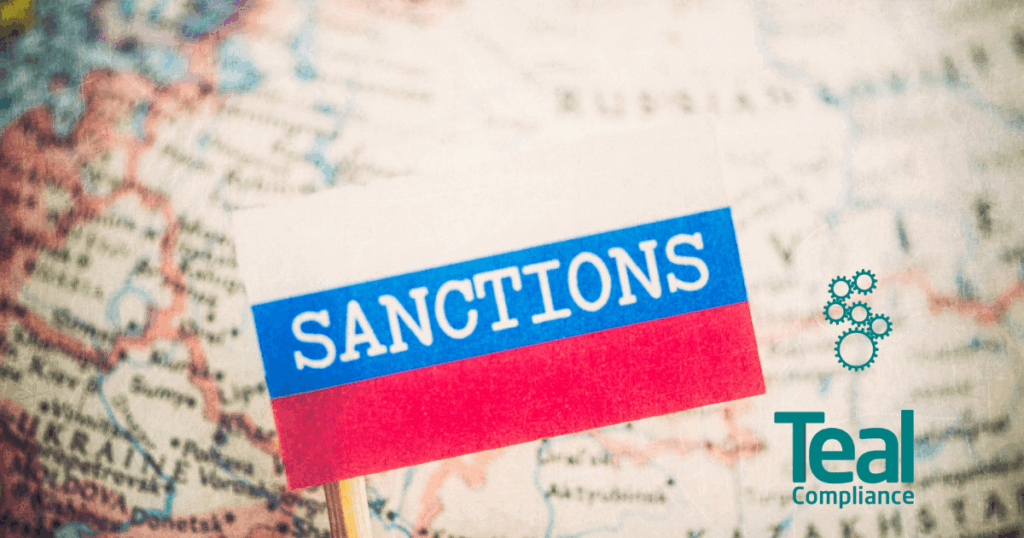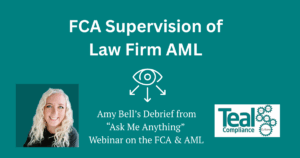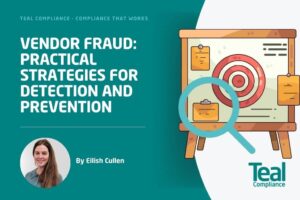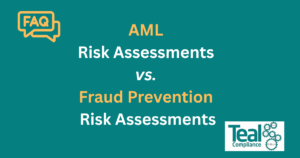Simon Harbord is a Senior Associate and Head of Consulting & Auditing at Teal. Simon’s areas of expertise are Sanctions, AML, Bribery and Regulatory.
Introduction
Global financial crime is constantly evolving, and so are international sanctions. The FATF (Financial Action Task Force) Plenary in June 2025 made it crystal clear that regulated businesses, especially law firms, must stay ahead of the curve. The consequences of falling short go far beyond regulatory fines: financial crime harms economies, communities, and ultimately society as a whole.
At Teal Compliance, we help law firms navigate this complex and fast-changing landscape. This article breaks down the latest FATF insights, explains the difference between blacklists and grey lists, and shares lessons from firms that have tripped up on source of wealth and funds checks, and how you can avoid the same fate.
Why International Sanctions Matter More Than Ever
The June 2025 FATF & MONEYVAL Plenary highlighted rising concerns about the global impact of financial crime and sanctions breaches. With conflicts, cybercrime, and illicit trade increasing, sanctions lists are more fluid and volatile than ever.
Key findings from the Plenary:
✅ FATF countries are seeing increased misuse of complex structures to mask beneficial ownership.
✅ Real estate remains a high-risk sector for money laundering globally.
✅ Non-compliance by professional service providers (including law firms) continues to enable illicit flows.
“Countries must remain vigilant and ensure effective risk-based supervision of their regulated sectors.” FATF June 2025 Plenary outcomes
As law firms deal with high-risk clients and high-value transactions, they’re squarely in the sights of regulators like the Solicitors Regulation Authority (SRA) (and if you’re one of our Australian law firm clients, that’s AUSTRAC).
Firms cannot afford to rely on static policies. You only have to hear Amy Bell speak on shocking examples of why static policies won’t keep your firm compliant and safe; sanctions lists can change daily, with entire jurisdictions or sectors becoming newly restricted.
Blacklists vs Grey Lists - What’s the Difference?
Blacklists: FATF terms this as “High-Risk Jurisdictions subject to a Call for Action”. Firms must apply enhanced due diligence (EDD), and in some cases avoid transactions entirely.
Grey lists: “Jurisdictions under Increased Monitoring”. These countries are working with FATF to resolve issues but still pose elevated risks. Enhanced scrutiny and monitoring of clients and transactions from these jurisdictions is required.
Examples (as of June 2025):
- Blacklist: North Korea, Iran,
- Grey list: Bulgaria, Nigeria, South Africa, BVI, Kenya (recent FATF additions at time of writing)
Tip: If your source of funds or source of wealth checks involve entities in these countries, even via complex chains, your risk of unknowingly facilitating sanctions breaches rises sharply.
Where Law Firms Go Wrong
We’ve worked with dozens of firms where weaknesses in AML controls led to breaches or near-misses:
Over-reliance on outdated client profiles
One UK firm accepted funds from a long-standing client, failing to check that the client’s new business partner was on a sanctions watchlist, a major risk gap.
Superficial source of funds checks
Another firm approved £4 million in property transactions for a client without verifying the real source of wealth. Post-transaction audits revealed undisclosed offshore interests linked to a grey-listed jurisdiction.
Missed beneficial ownership red flags
A conveyancing firm failed to spot that an opaque corporate vehicle was ultimately owned via entities in a high-risk third country – risking both sanctions violations and money laundering facilitation.
“Even well-established firms are vulnerable when checks are treated as a tick-box exercise, not a dynamic, ongoing process.”
Teal Compliance
Why This Matters (The Bigger Picture)
It’s tempting to think of financial crime as something that happens “elsewhere”, but every weak link in the chain fuels:
✅ Organised crime networks
✅ Corruption and fraud
✅ Exploitation of vulnerable communities
✅ Destabilisation of local economies
Firms that strengthen AML controls and stay ahead of sanctions changes aren’t just protecting their bottom line, they’re protecting their communities and profession.
How Teal Compliance Can Help
Teal AML Audits are uncover weaknesses before the SRA does!
Our SORTED Programmes are tailored solutions to embed robust AML controls
Our Training & Webinars keep your team up-to-date on sanctions, FATF outcomes and regulatory trends
For UK firms
✅ Prepare for the SRA’s increased scrutiny – please don’t wait for an investigation!
For Australian firms
✅ Our AML Sorted sister company offers a full suite of compliance solutions to match AUSTRAC’s latest expectations.
Contact Teal for an AML audit or a Sorted Programme review, and stay one step ahead. If you’d like to speak to Gary Yantin to ask any questions and which of our services best fit your firm, do book in a FREE CONSULTATION.
Simon Harbord
Head of Consulting & Auditing




